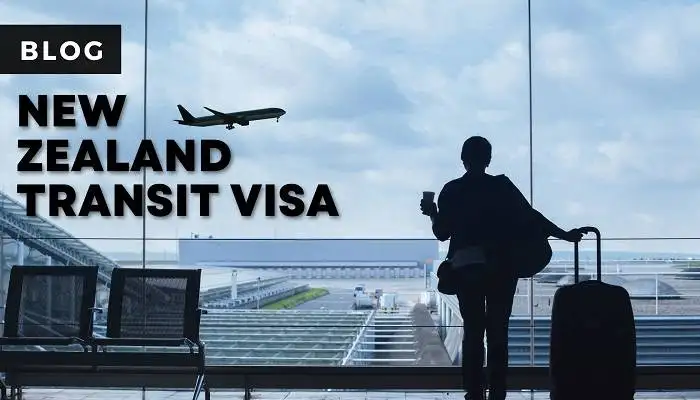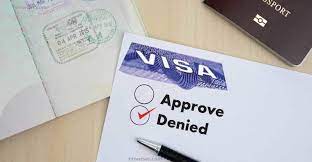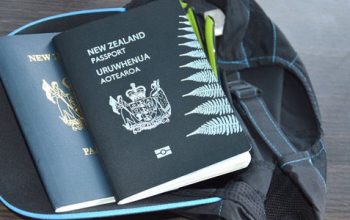Welcome to the land of breathtaking landscapes, vibrant cities, and rich cultural experiences – New Zealand! If you’ve ever dreamt of exploring this stunning country, then it’s time to unlock the beauty that awaits you. But before you embark on your adventure, let us guide you through the visitor visa application process. In this blog post, we’ll unravel all the secrets and intricacies involved in obtaining a visitor visa for New Zealand so that nothing stands between you and your extraordinary journey. From necessary documents to handy tips and everything in between – get ready to turn your dreams into reality as we delve into unlocking the beauty of New Zealand! NEW ZEALAND VISITOR VISA INFORMATION
Introduction to New Zealand and the Visitor Visa
New Zealand, commonly known as Aotearoa in the indigenous Maori language, is a country located in the southwestern Pacific Ocean. It is renowned for its breathtaking landscapes, diverse wildlife, and rich culture. With a unique blend of modern cities and untouched natural beauty, it has become a popular destination for tourists from all around the world.
If you are planning to visit New Zealand for leisure or business purposes, you will need to apply for a Visitor Visa. This visa allows you to stay in New Zealand for up to 9 months within an 18-month period. Whether you are traveling with family or exploring solo, the Visitor Visa gives you the opportunity to experience everything that this beautiful country has to offer.
The application process for a New Zealand Visitor Visa may seem daunting at first glance, but with proper guidance and understanding of the requirements, it can be a smooth and hassle-free process. In this section, we will take you through all the essential information about applying for a Visitor Visa to explore the enchanting land of New Zealand.
Types of Visitor Visas:
There are three types of visitor visas that can be applied for when visiting New Zealand – Tourist visa (for leisure purposes), Business visa (for conducting business activities), and Approved Destination Status (ADS) visa (for visitors from China). Depending on your purpose of travel, you must choose the appropriate visa type while filling out your application form. NEW ZEALAND VISA TYPES
Eligibility Requirements for a Visitor Visa:
Applying for a visitor visa to New Zealand is one of the easiest ways to explore the breathtaking landscapes, rich culture, and diverse experiences that this beautiful country has to offer. However, before you start planning your trip, it is important to understand the eligibility requirements for a visitor visa.
1. Purpose of visit:
The primary requirement for a visitor visa is having a valid reason for your visit to New Zealand. This could include tourism, visiting friends or family, attending business meetings or conferences, or participating in cultural or sporting events. It is essential to have a clear purpose of your trip as it will determine the type of visitor visa you need.
2. Valid travel documents:
To be eligible for a visitor visa, you must hold a valid passport with at least six months’ validity beyond your intended departure date from New Zealand. Additionally, you may also need other supporting documents such as return tickets and proof of sufficient funds to cover your stay in New Zealand.
3. Health and character requirements:
All visitors to New Zealand must meet certain health and character requirements set by the Immigration authorities. This includes being in good health and not having any criminal convictions or serious health issues that could pose a risk to public safety in New Zealand.
4. Proofs of ties with home country:
One of the crucial factors considered during the assessment of a visitor visa application is whether you have strong ties with your home country that would motivate you to return after your visit.
Types of Visitor Visas and Their Differences
New Zealand is a stunning and diverse country that attracts millions of visitors every year. Whether you are planning to explore the breathtaking landscapes, experience the rich Maori culture, or simply relax on one of its pristine beaches, obtaining a visitor visa is essential for most travelers.
A visitor visa allows you to enter New Zealand for tourism purposes, such as visiting family and friends, attending business meetings or conferences, or engaging in short-term study programs. Depending on your nationality and the purpose of your trip, there are different types of visitor visas that you can apply for. In this section, we will discuss the various categories of visitor visas available and how they differ from each other.
Visitor Visa (Tourist)
The Visitor Visa (Tourist) is the most common type of visa used by tourists who wish to visit New Zealand for leisure purposes. It allows you to stay in the country for up to 9 months within an 18-month period. This visa also permits multiple entries into New Zealand during its validity period, making it ideal for travelers who want to explore both islands.
To be eligible for this visa category, you must have enough funds to cover your stay in New Zealand, possess a valid passport with at least six months’ validity remaining, and hold return or onward tickets. You may also be required to provide evidence of travel insurance and undergo medical examinations if necessary.
Common Reasons for Visitor Visa Denials and How to Avoid Them
When planning a trip to New Zealand, obtaining a visitor visa may be required depending on your country of citizenship. While the process of applying for a visitor visa may seem straightforward, there are common reasons for denials that can easily be avoided with proper preparation and understanding of the application requirements.
1. Insufficient Proof of Travel Plans: One of the main reasons for visa denials is inadequate proof of travel plans. This includes not providing a detailed itinerary, lacking confirmation of accommodation bookings, or failing to show sufficient funds to cover your stay in New Zealand. To avoid this issue, make sure to have all necessary documents ready before submitting your application. This includes flight itineraries, hotel reservations or letters from friends or family if staying with them, and bank statements showing enough funds for your trip.
2. Lack of Ties to Your Home Country: Another reason for visa denials is when an applicant is perceived as having weak ties to their home country. Immigration officials want assurance that you will return home after your trip and not overstay your visa. Therefore, it is essential to provide evidence that you have strong ties such as employment contracts, property ownership, or family responsibilities in your home country.
3. Failure to Meet Health Requirements: Visitors are required to meet certain health standards before entering New Zealand. If you have any pre-existing medical conditions or diseases that could become a burden on the healthcare system in New Zealand, your application may be denied.
Additional Documents You May Need for Your Application
Once you have completed the basic requirements for a visitor visa application to New Zealand, there may be additional documents that you need to submit in order to strengthen your application. These documents will vary depending on your personal circumstances and the purpose of your visit. Here are some common additional documents that you may need for your application:
1. Proof of Financial Support: In order to ensure that you have enough funds to support yourself during your stay in New Zealand, immigration officials will require proof of financial support. This could include bank statements, proof of employment and income, or any other sources of income that can cover your expenses while in the country.
2. Travel Itinerary: It is also important to provide a detailed travel itinerary as part of your visa application. This will show the purpose and duration of your trip as well as where you plan to stay during your visit. If you are planning on staying with friends or relatives, it would be helpful to include an invitation letter from them stating their address and contact information.
3. Medical Certificate: If you are applying for a long-term visitor visa (more than six months), you may need to provide a medical certificate stating that you are in good health and do not pose any health risks to New Zealand citizens.
4. Travel Insurance: While it is not mandatory, having travel insurance can greatly improve the chances of your visa being approved. This document shows that you have taken precautions against unforeseen circumstances such as illness or accidents during your trip.



